The growth of crystals with tailored physical and chemical properties, characterization of crystals with advanced instrumentation and their eventual conversion into devices, play a vital role in science and technology. Crystal growth is an important field of materials science, which involves controlled phase transformation.
Over the past 20 years a variety of technological advances in X-ray crystallography have shortened the time required to determine the structures of large macromolecules (i.e., proteins and nucleic acids) from several years to several weeks or days.
However, one of the remaining challenges is the ability to produce diffraction-quality crystals suitable for a detailed structural analysis.
Although the development of automated crystallization systems combined with protein engineering (site-directed mutagenesis to enhance protein solubility and crystallization) have improved crystallization success rates, there remain hundreds of proteins that either cannot be crystallized or yield crystals of insufficient quality to support X-ray structure determination.
In an attempt to address this bottleneck, an international group of scientists is exploring use of a simulated microgravity environment to crystallize macromolecules.
Newly formed at the Western Michigan University Homer Stryker MD School of Medicine-Innovation Center, BioGravity LLC will be harnessing the Explor Space BioGravity™ Platform to repeat and advance macromolecular crystallization experiments.
Many crystallization experiments in space over the past three decades demonstrate the value of the ISS for improving molecular crystal growth. As far back as 2014, the ISS National Laboratory began sponsoring its own series of crystal growth investigations, and many have yielded high-quality crystals for analysis.
Most projects focus on structural determination for drug design, but others aim to improve drug formulation, manufacturing, and storage. Examples of repeat customers of the ISS National Laboratory in the area of protein crystal growth include Merck & Co., Eli Lilly & Co., The Michael J. Fox Foundation, and Oak Ridge National Lab. Some companies are additionally crystallizing inorganic compounds, toward advancements in materials science.
Moreover, multiple workshops held by the ISS National Laboratory over the past five years have produced actionable findings to help improve user success, including guidelines for informed molecule selection. See the link below for significant advances already achieved in microgravity:
ISS NATIONAL LABORATORY MICROGRAVITY MOLECULAR CRYSTAL GROWTH RESEARCH RESOURCES
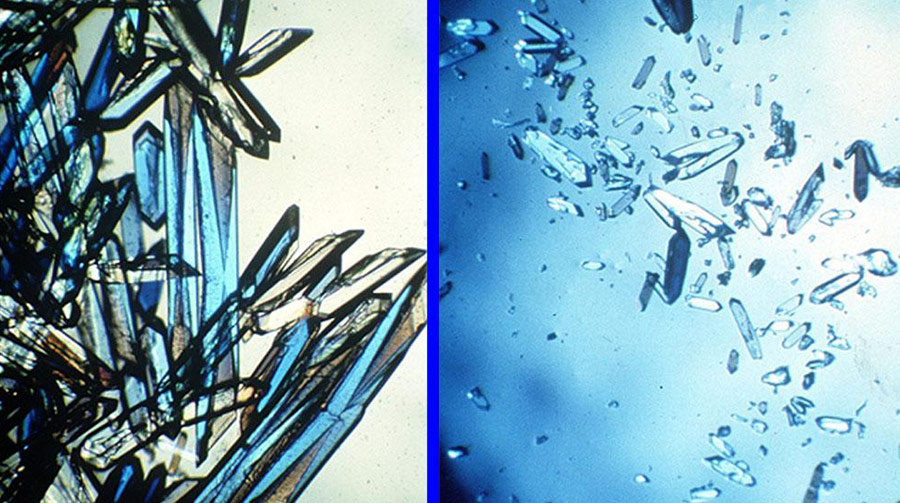
One such company is carrying on a long tradition of examining protein crystals in microgravity to help develop new drugs to help physicians fight disease. Merck Research Laboratories has studied protein crystals in microgravity, first during space shuttle missions and later on the space station. Development of the world’s best selling drug KEYTRUDA was aided by gravitational unloading and Macromolecular Crystallization.
Merck’s protein crystals are engineered antibodies that can bind themselves to the substances that cause disease, delivering medicines directly to the area needing treatment. These crystals are fragile and subject to disruption by gravity, so some of them are difficult to study on Earth.
BioGravity believes the countering of gravity and convection available in simulated microgravity using the random positioning machine integrated with the Explor Space BioGravity™ Platform can allow for the growth of larger and more perfectly formed crystals, helping researchers examine the structure of the proteins more easily and provide design innovations for new pharmacological treatments.
Merck along with BioGravity may continue research on proteins called monoclonal antibodies (MAB). These highly concentrated suspensions of the crystallized MABs may help develop a drug with higher concentrations of the antibodies needed to fight disease.
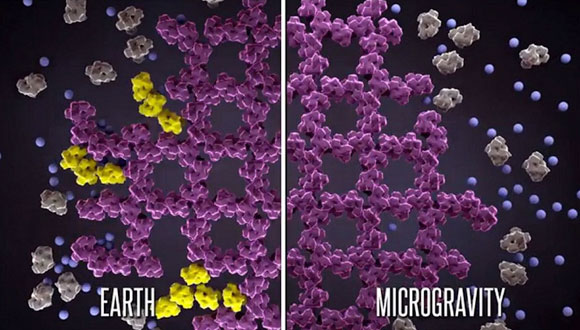
BioGravity has initiated a roundup of several papers on Macromolecular Crystallization including:
Microgravity Protein Crystallization (2015)
Crystals Grown in Microgravity Lead to New Therapeutics for Diseases
https://scitechdaily.com/crystals-grown-in-microgravity-lead-to-new-therapeutics-for-disease/(Sci Tech Daily 2015)
BIOGRAVITY LLC ENABLES INNOVATIONS IN BIOTECH USING MICROGRAVITY
Now you can rent, purchase or commission the Explor Space BioGravity Platform at the Michigan Space Station
Newly launched startup www.BioGravityLLC.com at the Western Michigan University Homer Stryker M.D. School of Medicine Innovation Center enables medical research for classroom or lab by using an advanced Random Position Machine called Explor Space BioGravity ™ Platform.
The BIOGRAVITY™ PLATFORM fits inside most standard incubators and features a platform for 96 Well Plate or 250mL bio reactor experiments using simulated microgravity.
Rated to 400 grams and radiation tested, the BioGravity platform is available for stem cell, exosome, bacteria, macrophage, small molecule, tumor and compound testing. Advantages for the platforms innovation include low fluid shear, lack of sedimentation and low turbulence, According to the Biodesign Institute at Arizona State University (in support of NASA) “simulated microdevices can be an invaluable tool to understanding mechanisms of the infection process.” As well, novel quantitative biosystems for modeling biofilm formation such as the BioGravity ™ Platform may aid transformative innovations in hfq expression through gravitational unloading.
Heady stuff. The BioGravity ™ Platform is the exclusive licensee in North America for sales and service of the Explor Space Simulated Microgravity RPM by the biomedical engineering team of Dr. Joshua Chou at University Technology Sydney.
Rated to over 3,000 hours of continuous use, the BioGravity™ Platform offers calibrated g performance to 10-3 and is integrated with the WMU Medical Innovation Center Labs for long duration, end-to-end verification. The BioGravity™ Lab at the Michigan Station is overseen by former NPI Researcher, Dr. James Secrest.
Machined in Japan, the platform is assembled and landed in Kalamazoo, MI resulting in zero tariff, import duties or VAT taxes. 1 Protein Fold Experiment is included. There’s both a WMU discount as well as a bulk discount on 10 or more serial-linked platforms. Rental, purchase or commission credit for simulated microgravity experiments are applied toward later experiment flight on the International Space Station (ISS) when booked through BioGravityLLC flight partners and integration specialists.
As mentioned, there are three ways to collaborate with the BioGravity team.
Clients may rent a commercial-grade BIOGRAVITY™ PLATFORM for about $1100 a month
Clients may purchase a BIOGRAVITY™ PLATFORM with a $10,000 discount for academia or non-profit.
Lastly, clients may commission a BIOGRAVITY™ EXPERIMENT with clinical or end-to-end verification from $15,000 USD.
Custom accessories and world-wide team consulting are also available.
Frank Pournelle
Chief Commercial Officer
Microgravity & Cell Division
NOVEL LAB + PRE-CLINIC DISCOVERY
800-334-4500
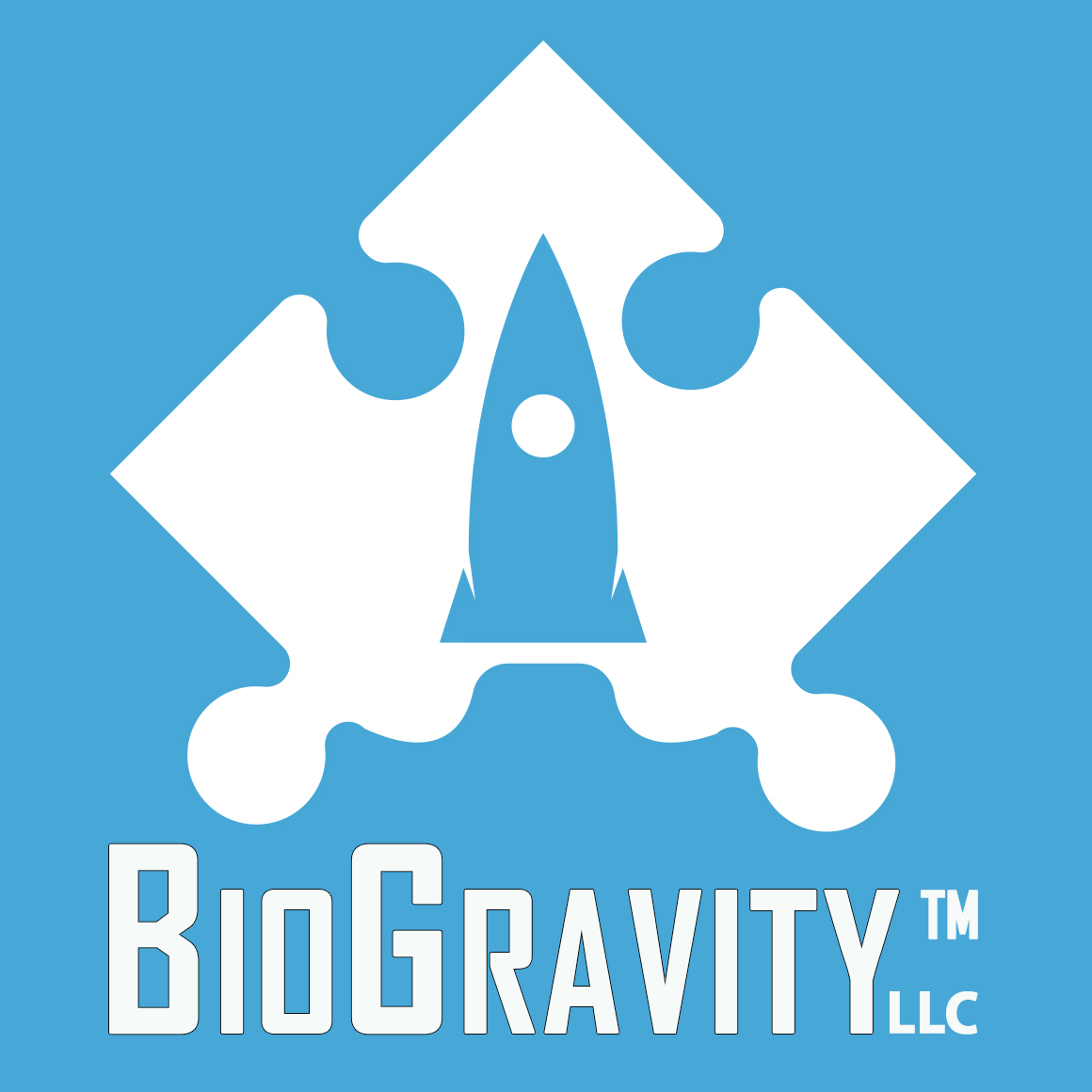
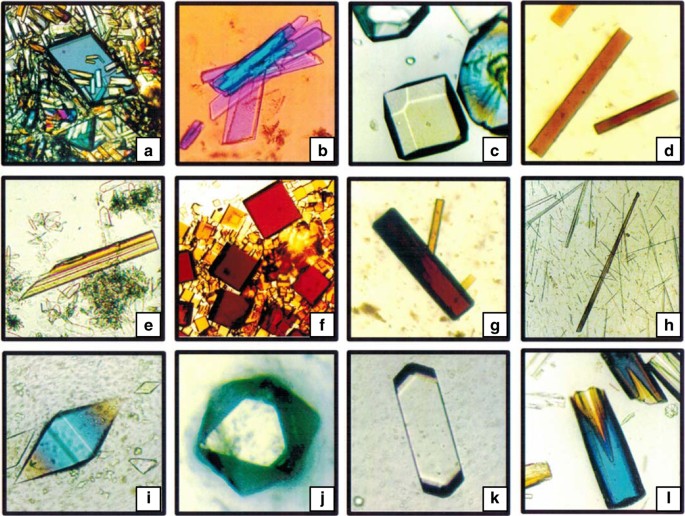
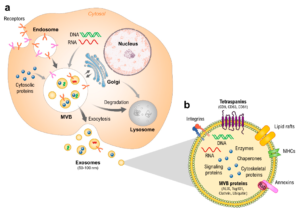
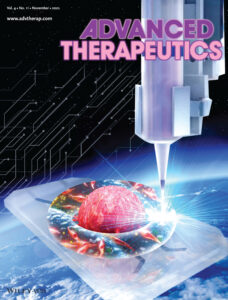
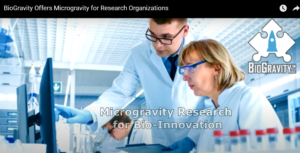
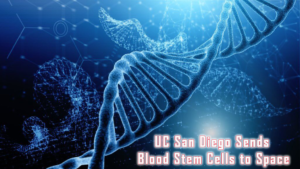
More Stories